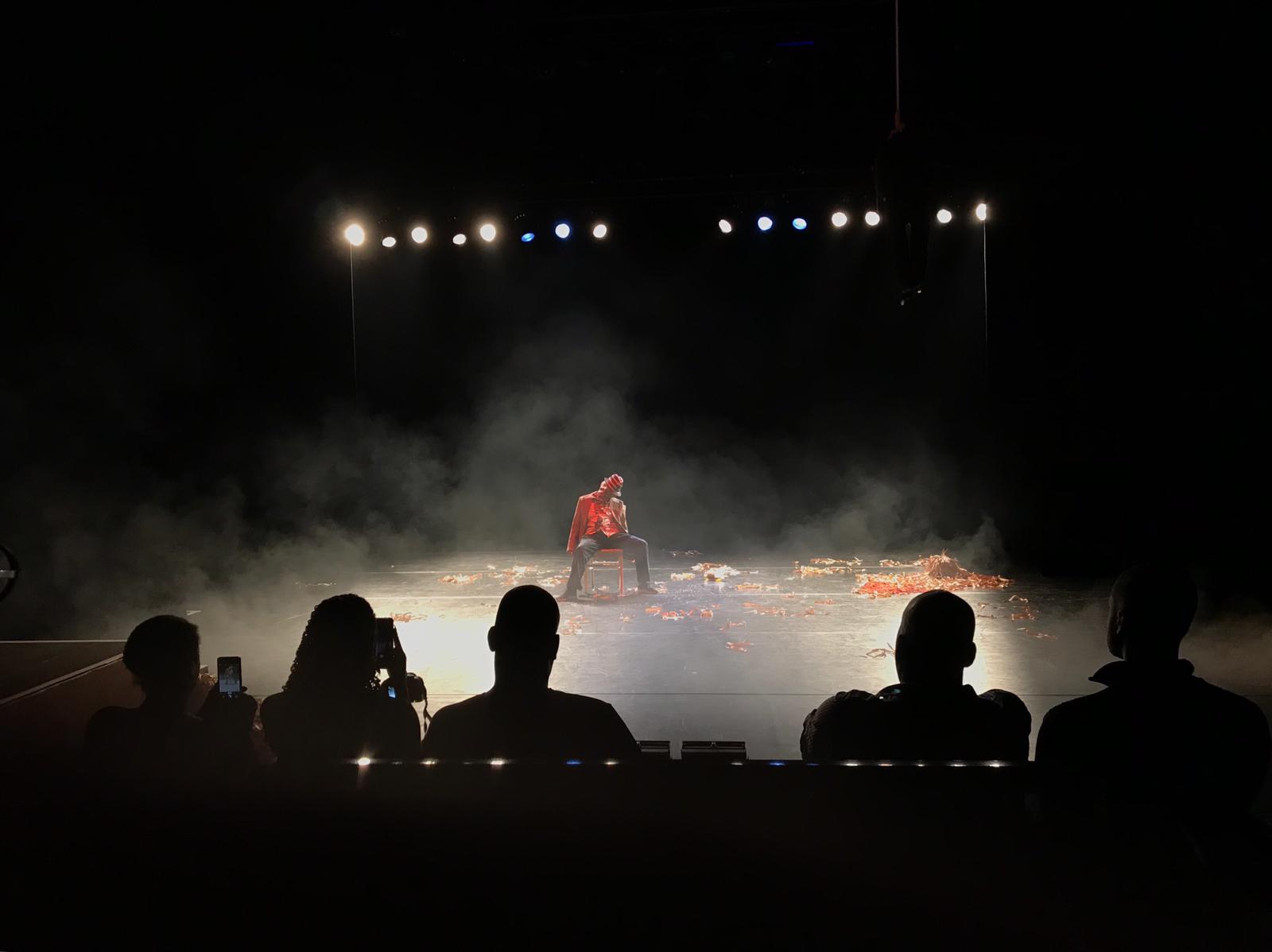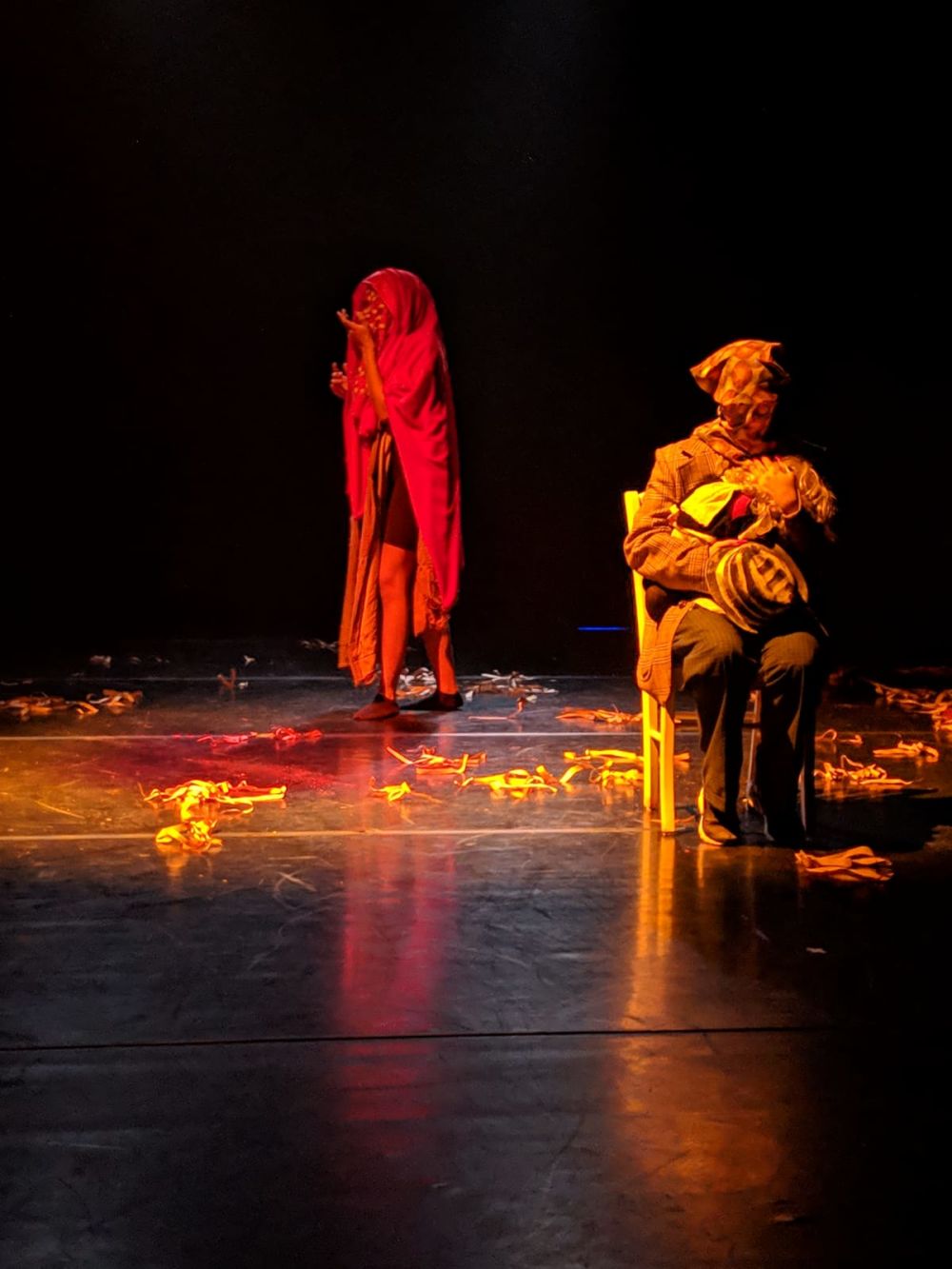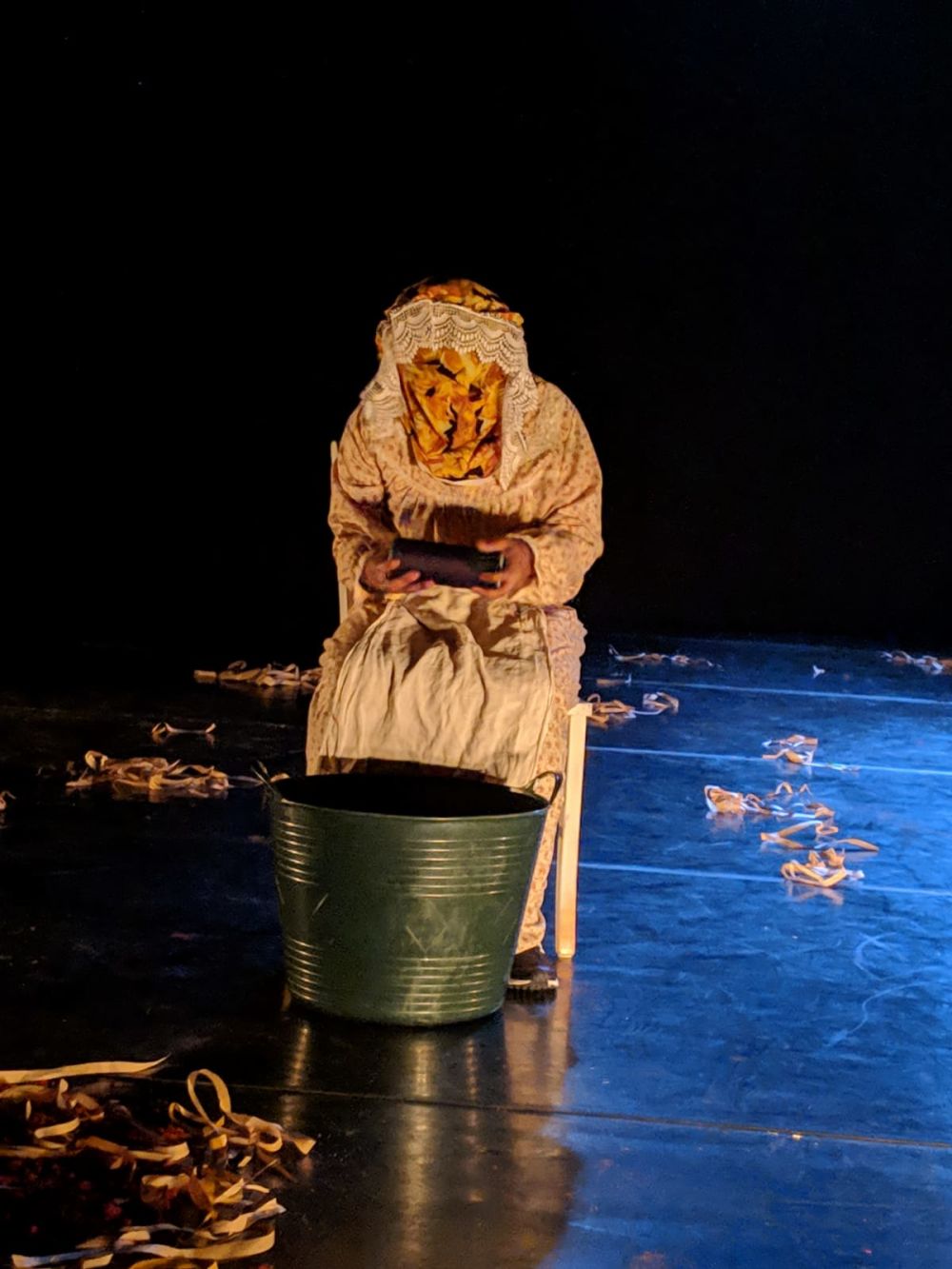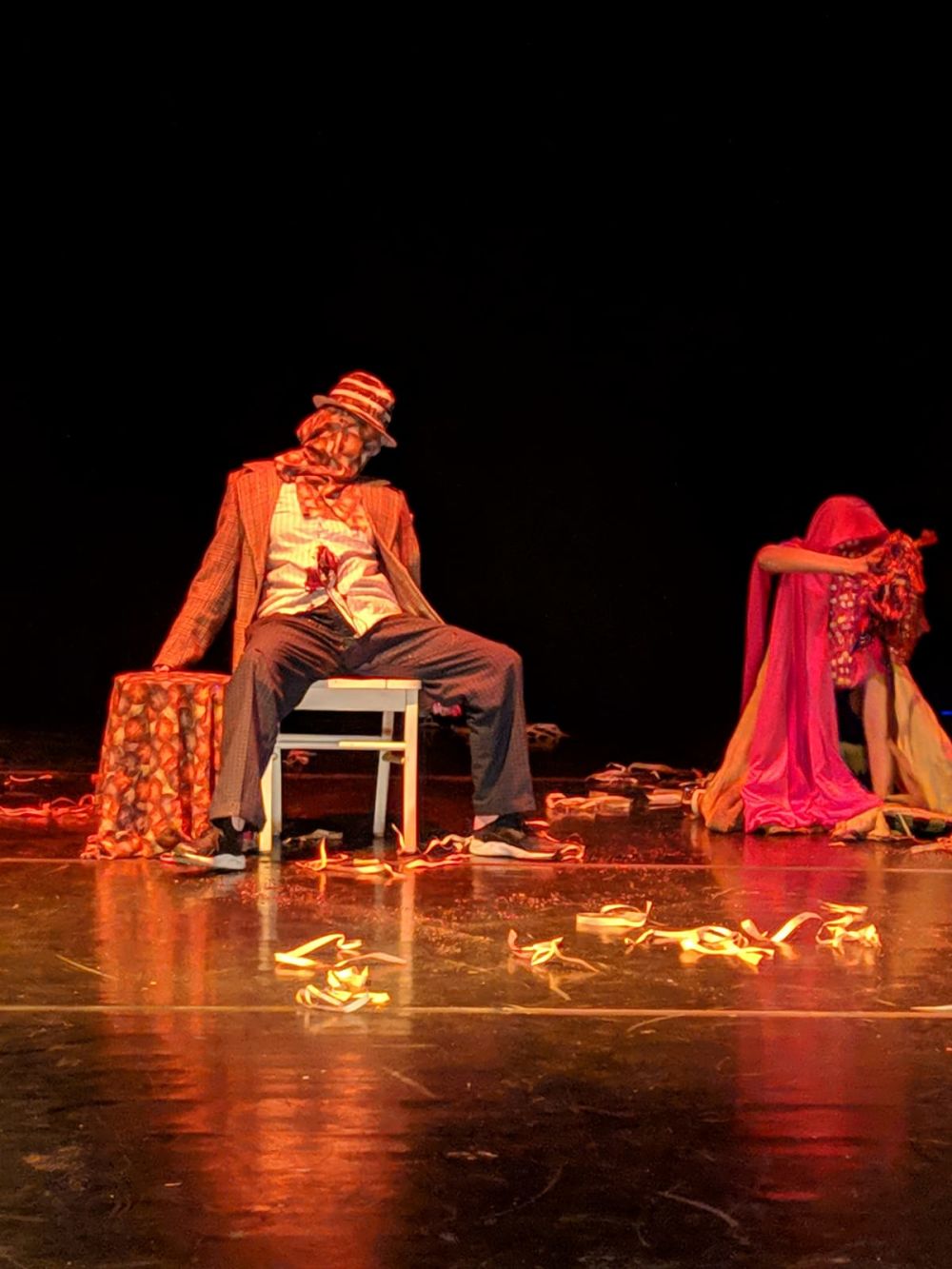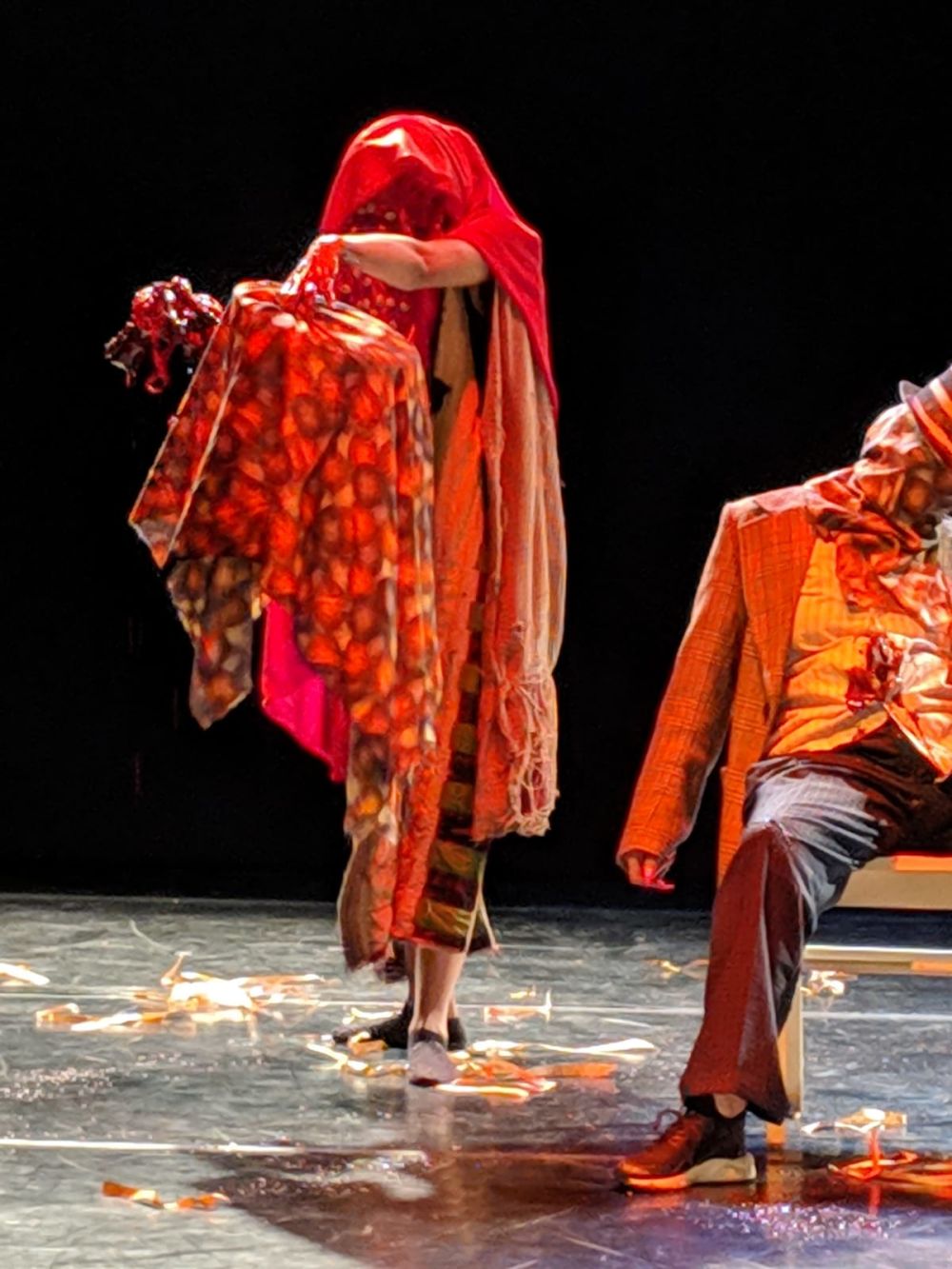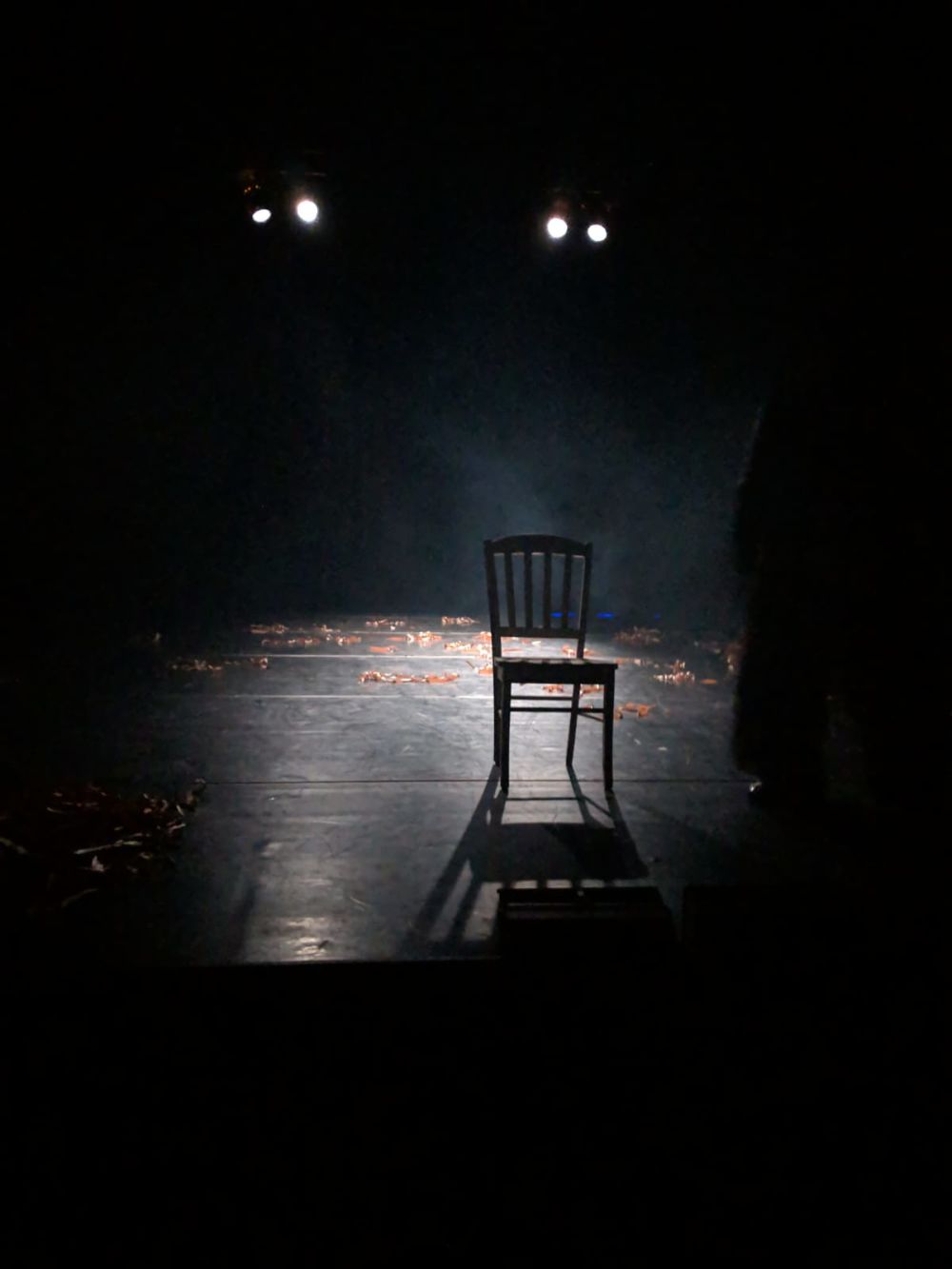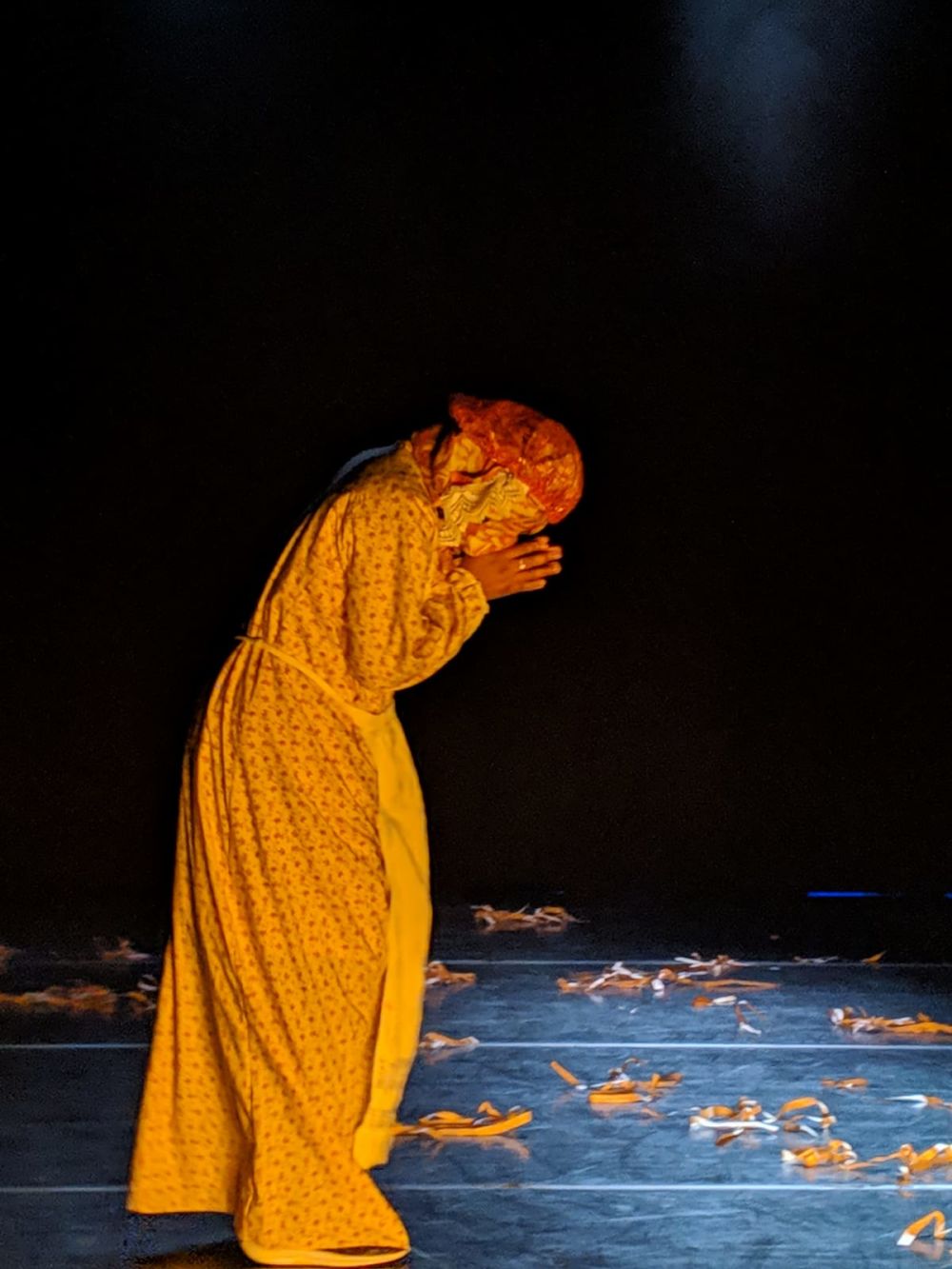Directed by Tamara James-Dickson (MA Performance Design and Practice) and produced by Hanna Stevens (MA Photography)
Jumby Chronicles is a series of chilling tales set in a post Brexit, apocalyptic town, where it is survival of fittest. Encounters of a strange nature creates tensions among the locals. This drama reimagined terrifying Caribbean and African folklore characters in a dystopian future. A mimicry of a western narrative.
Horror reflects deepest, darkest fears and anxieties over the other. Horror and blackness has joined hands producing monsters from a white point of view, is both threatening and persecuted. Film and fiction has been impacted by anthropological research to determine what the other is and has regurgitated visual representations.
George Herbert Mead’s classic text, Mind, Self and Society, recognised that social identities are created through an ongoing dialog with other people and our subsequent self-reflection, on who we think we are in relation to these social exchanges.
Images from the performance
Horror visualises the other to consolidate its otherness. When a person is labelled as, ‘other,’ they become social outcasts. This takes on phenomenological arguments. Fatimah Tobing Rony says “throwing the archaic or the savage into the frame confirms the absolute incommensurability”.
The term "post-colonial gaze" referred to by Edward Said, (1993) is used to explain the relationship that colonial powers extended to people of colonised countries. Post-colonialism is used to refer to various cultures affected by the colonisation process to this present day. Due to the forcefulness and aggression of the European colonisers the effects have had continuous implications involving power relations that date back to slavery.
This project was an hour-long theatre performance held at the platform theatre April 30th. This show responded to Community resilience as a theme through a post-colonial lenses. This project was made to address the issues raised within the BAME (Black, Asian, minority ethnic) community using a theatrical setting. Issues such as isolation, institutional and internalised racism is the reality of many students within the University of The Arts London colleges.
This project saw a series of collaborators and practitioners on this project including costume makers, scenic designers and sound engineers. Upon talking with students about their experiences, we have collaborated on a show, made as an anthology piece to reflect this in all aspects.
Their stories will be portrayed through traditional Caribbean storytelling, using the genre of horror. This show took on a narrative about the BAME experience which conventionally has been told by western voices and retold from the perspective of those from the BAME community.
Tackling race issues within UAL has been on the agenda for creating change, making the experience better for BAME students and bringing more diversity to courses. By putting on this project Jumby chronicles aimed to contribute to the creating of more inclusive work, that is more reflective of BAME students and creating an inclusive space for BAME students.
The theatre for many can be an unsafe space for many people because of the lack of diversity. Despite being made to reflect the experiences of the BAME community within UAL this project was conjured for everyone. The aim of this project is to engage non BAME students to begin talking about race and explore other world-views, in a very creative way. In addition to this to challenge views held on the BAME community and to encourage more people to exercise acceptance and empathy.

This project aims to return on a platform outside the university of the arts, open to a wider public.
This project was part funded by The Post-Grad Community Project Fund, making funds available to UAL postgraduate students to organise events, projects and cultural interventions that bring together postgraduate students from different disciplines, courses and colleges.
